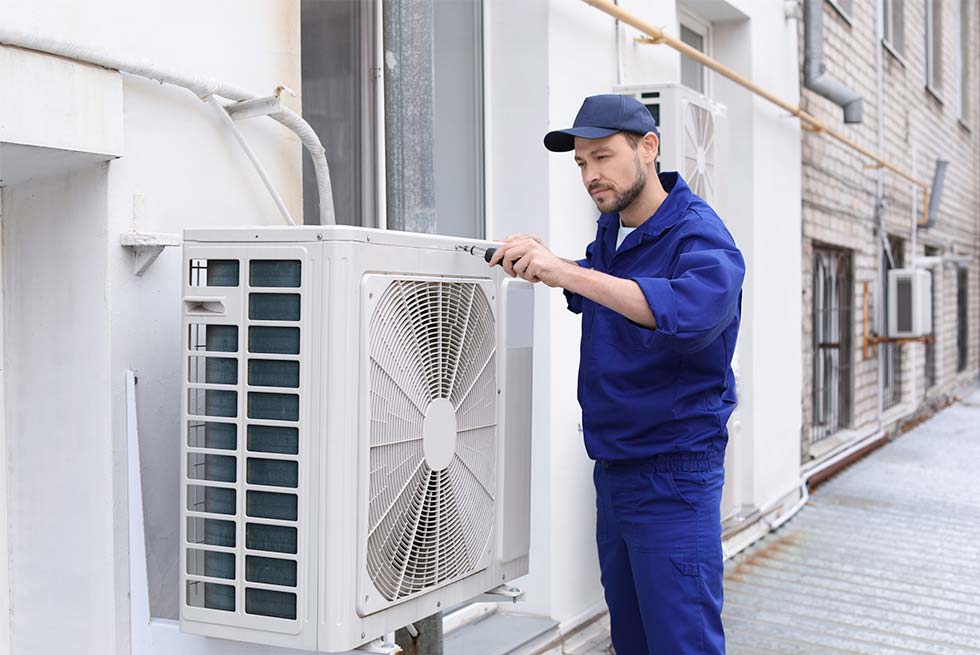How to Control Humidity in Your Home: Expert Tips for Better Comfort

You step into your home after a long day, expecting a refreshing escape from the outdoor weather. Instead, you’re greeted by heavy, sticky air in the summer or dry, crackling discomfort in the winter. Sound familiar? Humidity plays a bigger role in your home’s comfort than you might think, and finding the right balance can transform your living space into a true sanctuary.
As an HVAC technician at U.S. Heating and Air, I’ve helped countless homeowners on the Delmarva Peninsula tackle their indoor humidity problems. The region experiences relatively high humidity year-round due to its proximity to the Atlantic Ocean.
Summers are particularly muggy, while winter months, though drier, still have moderately high humidity levels compared to other areas. Whether you’re dealing with excessive moisture or bone-dry air, the key lies in understanding how humidity control works and using the right strategies to maintain optimal indoor air quality year-round.

Understanding Delmarva’s Humidity Patterns
Humidity in the Delmarva Peninsula is influenced by its coastal location. Here’s a breakdown of how it fluctuates throughout the year:
Highest Humidity: The summer months (June – August) bring the most significant humidity levels, making indoor cooling and dehumidification essential.
Lower Humidity: Winter months (December – February) have lower humidity, but it’s still considered high compared to inland areas, which means dry air can still be an issue.
Moderating Factor: The Atlantic Ocean plays a major role in keeping humidity levels consistently high throughout the year, preventing extreme fluctuations but also making indoor humidity control crucial for comfort.
How to Reduce High Humidity in Your Home
Excess humidity can make your home feel like a sauna and cause serious issues like condensation, wood rot, and mold growth. Here’s how to keep moisture levels in check:
1. Use a Dehumidifier
A dehumidifier is one of the most effective tools for managing moisture. A whole-home dehumidifier, integrated into your HVAC system, can regulate humidity levels throughout your house, while portable units work well for problem areas like basements and bathrooms.
2. Run Your Air Conditioner
3. Improve Ventilation
Proper ventilation helps expel humid air and bring in fresh, dry air. Use exhaust fans in bathrooms and kitchens, and consider installing a ventilation system to maintain balanced airflow.
4. Seal Leaks and Cracks
5. Address Water Intrusion
Maintaining the Right Balance Year-Round
Your home’s humidity needs change with the seasons. Here’s how to stay on top of it in the Delmarva Peninsula:
-
In summer, use dehumidifiers, air conditioning, and ventilation to keep excess moisture at bay.
-
In winter, run humidifiers and radiant heating to combat dry air while still maintaining moderate humidity levels.
-
Monitor your humidity levels with a hygrometer to make necessary adjustments.

Call the Pros for Expert Humidity Control
If you’re constantly battling high or low humidity, your HVAC system may need an upgrade or maintenance check. At U.S. Heating and Air, we specialize in customized humidity control solutions, ensuring your home stays comfortable in every season.
Give us a call today to schedule a consultation and take the first step toward a perfectly balanced indoor climate!
FAQ: Common Questions About Humidity Control
What is the ideal indoor humidity level for homes in Delmarva?
The ideal indoor humidity level is between 30-50%. During the summer, aim for the lower end to combat the region’s naturally high humidity. In the winter, keeping it closer to 40-50% helps maintain comfort.
How can I tell if my home has a humidity problem?
Signs of high humidity include condensation on windows, musty odors, and mold growth. Signs of low humidityinclude dry skin, static electricity, and cracking wood furniture.
Will my HVAC system help control humidity?
Yes! A well-maintained HVAC system can regulate humidity by using air conditioning to remove excess moisture in the summer and humidifiers to add moisture in the winter.
Are whole-home dehumidifiers worth the investment?
Absolutely. Whole-home dehumidifiers work with your HVAC system to control moisture levels across your entire home, reducing energy costs and improving comfort compared to portable units.
When should I call a professional for humidity issues?
If you’re constantly dealing with mold, condensation, or dry air despite using dehumidifiers or humidifiers, it’s time to call an HVAC expert for a customized humidity control solution.
Where can I find more info on Humidity Control?
For additional details and expert insights on humidity control, check out these sources:
-
Environmental Protection Agency (EPA) – Indoor Air Quality & Humidity
-
ASHRAE (American Society of Heating, Refrigerating and Air-Conditioning Engineers) – Humidity Control Standards
-
Energy Star – Dehumidifiers and Energy Efficiency
-
National Weather Service – Delmarva Climate and Humidity Trends
-
Centers for Disease Control and Prevention (CDC) – Mold Prevention and Humidity
